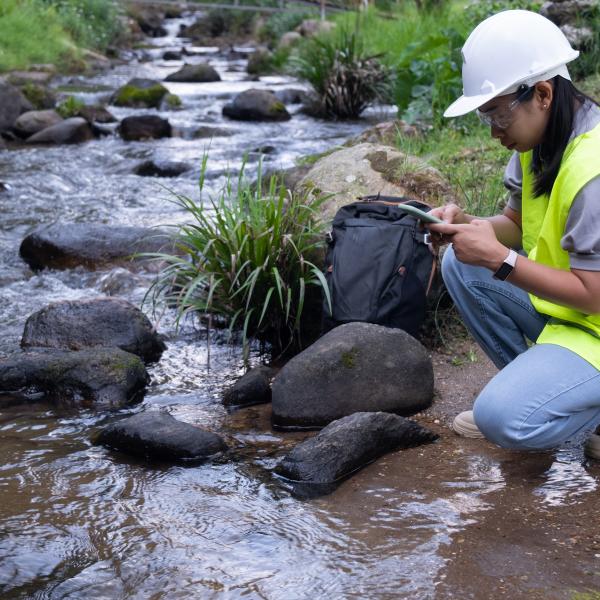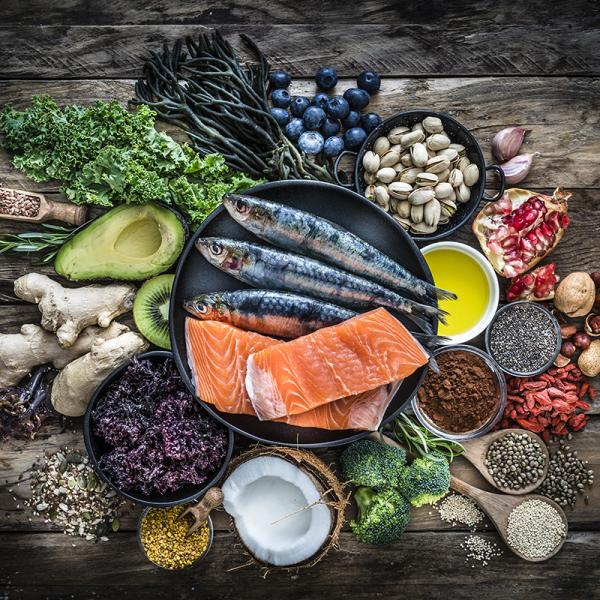
Key Points
- Research confirms that fraudulent Kakadu plum extracts are in circulation online and in the international marketplace
- All the overseas supplied powders in the study and compared against authentic Kakadu plum samples, were fakes
- Investigators used stable isotope analysis and X-ray fluorescence elemental profiling to evaluate the authenticity of commercially available Kakadu plum powdered samples
To coincide with National Reconciliation Week, ANSTO is sharing research published recently in the journal Food Control that confirms fraudulent Kakadu plum extracts are in circulation online and in the international marketplace. Kakadu Plum is an endemic Australian fruit and current production is largely wild harvest, from northern Australia, a large proportion of which is produced by Indigenous Australians.
An approach to validate provenance developed by ANSTO and partners could be used safeguard authentic Kakadu Plum extracts and help protect the industry in the international marketplace.
Ongoing research in association with the Northern Australian Kakadu Plum Alliance (NAAKPA), who represent Aboriginal owned producers in the Northern Territory and Western Australia, is enabling genuine producers to have oversight of the sector and protect the industry.
NAAKPA provided the genuine samples for the study, welcomed publication of the findings that confirmed suspicions and provided scientific evidence of fraudulent product in circulation in the international marketplace.
ANSTO has been generating distinct signatures, known as iso-elemental fingerprints, for individual growers in the Alliance. A fingerprint, based on the isotopic and elemental profile, is unique to a specific location and vary even between adjacent harvest areas. The data is being added to a reference database to help identify where fruit comes from in the future. The technology has also been used to validate extracts produced from their ingredient Kakadu plum fruits.
In this study, investigators used stable isotope analysis and X-ray fluorescence elemental profiling to evaluate the authenticity of 13 commercially available Kakadu plum powdered samples purchased online from Australian and overseas suppliers and compared them against four powdered samples directly provided by First Nations harvesters.
All the overseas supplied powders in the study were fakes, not derived from Kakadu plum.
The signature of isotopic carbon (δ13C) was a key determinant in distinguishing between Australian and overseas supplied Kakadu Plum powder.
“Various food provenance techniques exist; however, many are impractical because of testing costs, and concerns about timeliness and accuracy. Testing regimes are also very specific as each resource has different characteristics.
“The analysis suggest that our iso-elemental technology is a useful technique for determining fraud in the supply chain,” said Dr Mazumder.
Lead author Mariel Keaney was supervised by Prof of Environmental Sciences Neil Saintilan of Macquarie University, where she was studying, Prof Jes Sammut of UNSW, Dr Mazumder and Food Provenance team at ANSTO.
The interest in Kakadu Plum extracts is driven by to the fruit’s high levels of vitamin C and other antioxidant compounds and its uses in the nutraceutical and cosmetics industries. The Kakadu Plum sector is an emerging Australian industry and is an important economic, and cultural asset for Indigenous communities across northern Australia. The market value of Kakadu Plum in Australia is expected to rise from $1.6 million to $3.5 million by 2025 due to its health benefits and versatility.
“The application of science-based traceability method will help to protect the emerging Kakadu plum industry and ensure the benefits of commercialisation are enjoyed by First Nations communities,” said Paul Saeki, CEO, NAAKPA.
Project was funded by the Australian Government Department of Agriculture, Fisheries and Forestry's Traceability Grant Program.









